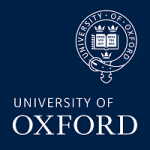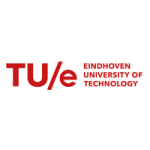项目介绍
About the course
As a DPhil in Clinical Medicine student, you will conduct research in basic science and/or in clinical medicine. The degree will provide you with research skills, in-depth knowledge, understanding and expertise in your chosen field of research.
This course is taking part in a pilot on the assessment procedure of graduate applications to address conscious and unconscious bias for entry in the 2021-22 academic year. Please carefully read the instructions concerning submission of your CV/résumé in the How to apply section page of this page, as well as the full details about this pilot.
Research subjects cover a broad spectrum of sciences related to medicine and include: behavioural science, bioinformatics & statistics (including modelling and computational biology), cell and molecular biology, clinical epidemiology, drug discovery, genetics and genomics, global health and tropical medicine, immunology, integrative physiology (systems biology), microbiology, protein science and structural biology, transcription biology.
Doctoral students within the Nuffield Department of Medicine carry out research in a single laboratory for three to four years if studying full-time, or six to eight years if studying part-time. There is no period of rotation between laboratories. All doctoral students develop their skills through a range of research training and skills development in their first year of full- time study or first two years of part-time study, by attending compulsory and optional courses and lectures in laboratory techniques and generic skills, including scientific writing and statistics, while also working at the bench.
You will be encouraged to attend lectures and seminars related to your programme of research and make the most of the doctoral training and research methods provision available across the Medical Sciences division. The aim is to tailor this training to individual needs and bring all students up to satisfactory level in background knowledge. Later training is focused on the skills required for a successful career in independent research.
The department’s students are part of the Medical Sciences Division; lectures and seminars cut across departments and collaborations are widespread within the University.
Research groups
The Nuffield Department of Medicine (NDM) comprises research groups in several institutes and laboratories, including:
- Big Data Institute – NDM (BDI)
- Centre for Cellular and Molecular Physiology (CCMP)
- Experimental Medicine Division (EXPMED)
- Translational Gastroenterology Unit
- The Peter Medawar Building
- The Jenner Institute (JENNER)
- Clinical Biomanufacturing Facility (CBF)
- Ludwig Institute for Cancer Research Oxford Branch (LICR)
- NDM Research Building
- The Target Discovery Institute (TDI)
- Centre for Translational Immunology
- Centre for Medicine Discovery (CMD)
- Structural Genomics Consortium (SGC)
- Division of Structural Biology (STRUBI)
- Oxford Particle Imaging Centre (OPIC)
- Oxford Protein Production Facility (OPPF)
- Centre for Tropical Medicine and Global Health (TROPMED)
- Mahidol Oxford Tropical Medicine Research Unit (MORU) – Thailand
- Oxford University Clinical Research Unit (OUCRU) – Vietnam
- KEMRI–Wellcome Trust Collaborative Research Programme – Kenya
- Wellcome Centre Human Genetics (WHG)
Students housed within the NDM-BDI can describe their DPhil subject as Biomedical Data Science. Those within TROPMED and associated within the AAPs (MORU, OUCRU and KEMRI) can describe their DPhil subject as Tropical Medicine and Global Health.
In exceptional cases, students may be admitted to study for the MSc by Research degree.
Supervision
The NDM takes the creation of supervisory teams very seriously and this will form an important part of the admissions process. All students must have at least two supervisors and many will have more than two. Within the NDM, students should meet with their supervisors at least once a fortnight, on average, across a year.
Please note that the allocation of graduate supervision for this course is the responsibility of the Nuffield Department of Medicine and it is not always possible to accommodate the preferences of incoming graduate students to work with a particular member of staff. Under exceptional circumstances a supervisor may be found outside the Nuffield Department of Medicine.
Assessment
Students will be admitted to the course as a Probationer Research Student (PRS) and will transfer to the status of DPhil Student after successfully completing their Transfer of Status milestone. By the end of the 9th term students will be assessed for their Confirmation of Status milestone with the doctoral work culminating in a thesis that will be defended in an oral examination (viva voce).
Graduate destinations
DPhil in Clinical Medicine students follow a wide variety of career paths, including all branches of biomedical research, clinical medicine, teaching, health administration and commerce.
Changes to this course and your supervision
The University will seek to deliver this course in accordance with the description set out in this course page. However, there may be situations in which it is desirable or necessary for the University to make changes in course provision, either before or after registration. The safety of students, staff and visitors is paramount and major changes to delivery or services may have to be made in circumstances of a pandemic (including Covid-19), epidemic or local health emergency. In addition, in certain circumstances, for example due to visa difficulties or because the health needs of students cannot be met, it may be necessary to make adjustments to course requirements for international study.
Where possible your academic supervisor will not change for the duration of your course. However, it may be necessary to assign a new academic supervisor during the course of study or before registration for reasons which might include illness, sabbatical leave, parental leave or change in employment.
For further information please see our page on changes to courses and the provisions of the student contract regarding changes to courses.
录取要求
-
a first-class or strong upper second-class undergraduate degree with honours in a relevant discipline such as biology, biochemistry, or medicine.
-
However, entrance is very competitive and most successful applicants have a first-class degree or the equivalent.
-
A previous master’s degree is not required.
联系方式
电话: +44 1865 270000相关项目推荐
KD博士实时收录全球顶尖院校的博士项目,总有一个项目等着你!






